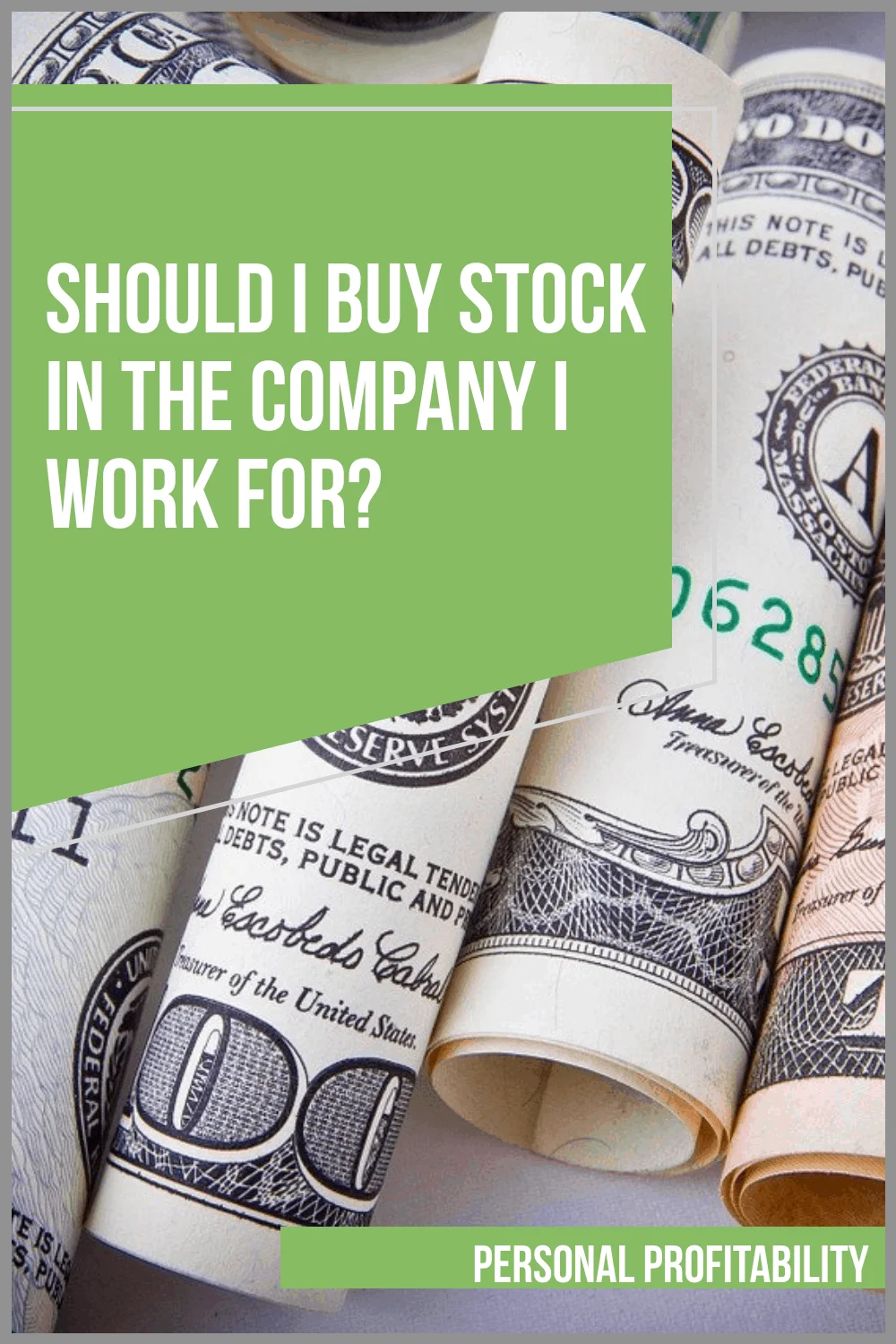Millions of people in the United States work at public companies with stock available for purchase. Some of these companies give employees stock for free, others offer company stock to employees at a discount, many commonly offer company stock as a portion of 401(k) plans. While many of us are loyal and believe in the companies we work for, is it a good idea to invest in our company’s stock?

I used to work for a company that allowed me to purchase stock on a monthly recurring basis for 85% of the market price at the end of the month. Because they were regularly scheduled purchases, it was a long-term planned investment. I couldn’t change my mind at the last minute if the stock jumped up or down.
Don’t Keep All Your Eggs in One Basket
In 2001, employees of Enron lost billions of dollars they had invested in their company stock through the company’s retirement plans. Just a year later, the employees of WorldCom endured a similar fate. Those people are far from alone in losing money in their company’s stock.
I have worked at two companies with employee ownership plans. My first corporate finance job was at a telecom company with a discounted stock purchase plan. I could buy stock at 85% of month end closing price, but only if I invested on a regular basis with a payroll deduction. I did invest a portion of my savings in the company stock and it worked well for me. I made a lot and sold a chunk of my shares to buy my first home.
My second company gave employees shares each year for free. In addition, 100% of the employer match in our 401(k) plan was made in company stock. That was not as good of a deal. While there is nothing wrong with free stock, there is something wrong with keeping a large portion of your retirement account in one stock. While I did believe in the company, I regularly re-balanced my 401(k) to have less company stock and more diverse funds.
In 401(k) investing, just like all investing, always diversify your retirement funds. I suggest keeping the bulk of your retirement savings in a diversified fund like a target date fund or something similar. It should not all be in one stock under any circumstance.
Invest If You Believe The Stock Will Go Up
I invested in my company stock in the past because I believed the company stock was going to go up in the future. As an employee that worked at the company every day, few people were in a better position than me to know the company culture, financial performance, and the general direction of the company.
I saw the company moving in the right direction, so I continued buying company stock. If you don’t believe the company is run well or going the right direction, don’t buy.
Don’t Break Insider Trading Laws
Remember, no matter what you do, be sure to follow insider trading laws. If you are in possession of material, non-public information, you are forbidden from buying or selling company stock. If you are in doubt, contact your legal department. The SEC prosecutes insider trading cases, and offers this list as common insider trading scenarios:
-
Corporate officers, directors, and employees who traded the corporation’s securities after learning of significant, confidential corporate developments;
-
Friends, business associates, family members, and other “tippees” of such officers, directors, and employees, who traded the securities after receiving such information;
-
Employees of law, banking, brokerage and printing firms who were given such information to provide services to the corporation whose securities they traded;
-
Government employees who learned of such information because of their employment by the government; and
-
Other persons who misappropriated, and took advantage of, confidential information from their employers.
Diversify Your Entire Portfolio
When planning your retirement, always focus on having a diverse portfolio that meets your needs. That includes company stock. When I was participating in my company’s stock plan, I put 2% of my pay into company stock. At the same time, 8% of my pay was invested in diversified funds that included both stock and bond investments.
So, should you buy company stock? Would you buy stock in the company if you did not work there? If yes, you should. If no, you shouldn’t. Look at company outlook and earnings. Only by looking at the stock from the eyes of an investor, rather than an employee, can you make a good decision.
Do you invest in company stock? Do you have a stock purchase plan that you are not participating in? Why? Please share your thoughts in the comments.
Originally posted November 14, 2008. Updated June 19, 2021.



I don’t see a problem with investing in some company stock, but you are right that you shouldn’t keep all of your eggs in one basket. My husband and I generally avoid investing more than 5% of our investment income in any company.
The only company I have ever invested for than about 5% before was Berkshire Hathaway, which works more like a mutual fund than a company most of the time. I did build up quite a bit of stock from my first employer when I could buy at a discount, but compared to my retirement savings it was still a pretty small portion of my overall investments. That stock did go way, way up and it helped quite a bit with my grad school costs and my first home down payment.